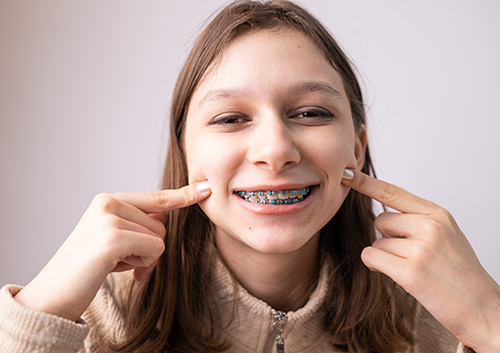Natural Ways to Soothe a Toothache
October 17th, 2025

Toothaches can come in many different forms, but no matter which, they’re always uncomfortable. Dr. Michelle Slezewski and Dr. Paul Engibous and our team want you to know there are simple ways to cure this common problem.
Toothaches can be caused by infections, gum diseases, teeth grinding, trauma, or having an abnormal bite. Several symptoms may become noticeable when you start to experience a toothache. You might develop a fever, have trouble swallowing, notice an unpleasant discharge, and most often feel lasting pain when you bite down.
If you begin to notice any of these symptoms, try to manage the pain with the simple remedies below. If the pain continues, contact our Anchorage, AK office and schedule an appointment, because a bigger issue might be involved.
- First, try rinsing your mouth out with warm salt water. This helps to disinfect your mouth and may soothe the region where the toothache is occurring. Hydrogen peroxide can also help if you swish it around in your mouth.
- Applying a cold compress or ice pack to your jaw in area that hurts can help with swelling.
- Make sure to floss your entire mouth thoroughly. The problem could be caused by food debris stuck between your teeth.
- Certain essential oils possess pain-relieving qualities, including clove, nutmeg, eucalyptus, or peppermint oil. Use a cotton swab and dilute one of these oils, then apply it to the problem tooth and/or gum area. Repeat the process as needed. This can also be done with apple cider vinegar.
- Similar to essential oils, peppermint tea can soothe and slightly numb the area. Swish it around in your mouth once it has cooled off for temporary relief.
- You may also soothe a toothache by eating Greek yogurt. You might be surprised to know that yogurt contains healthy bacteria that can help fight against pain.
- Crushed garlic can be rubbed on the aching area to help relieve pain. Garlic contains allicin, which slows bacterial activity. The application may burn at first but it has been known to help treat inflammation.
When it comes to preventing toothaches, you can take various measures. Always make sure you brush and floss every day, though. If you schedule regular oral examinations by Dr. Michelle Slezewski and Dr. Paul Engibous, you will decrease infections that may cause toothache from spreading.
If you’ve tried the methods listed above and your toothache hasn’t gone away, call our Anchorage, AK office and we can schedule an appointment to figure out the cause of the problem and provide a solution.



